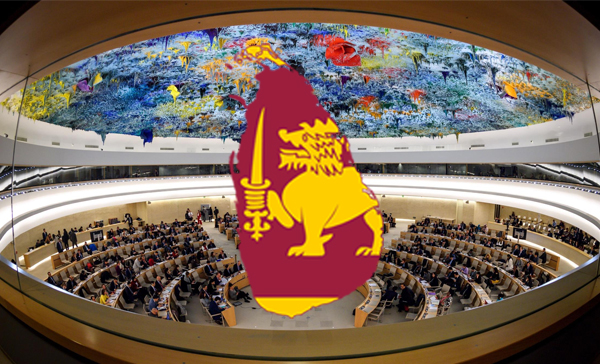The 57th session of the United Nations Human Rights Council is set to commence on Monday, September 9, in Geneva.
This session will feature a significant discussion on the report concerning Sri Lanka, prepared by the Office of the High Commissioner for Human Rights (OHCHR).
According to the official website of the United Nations Human Rights Council (UNHRC), the report on Sri Lanka will be taken up for discussion on the opening day.
In a recent report, the UN Human Rights Office has called on Sri Lanka’s creditors to provide the Government with the fiscal space needed to realize economic, social, and cultural rights.
UN Human Rights Chief Volker Türk in a new report said that economic policy decisions must align with Sri Lanka’s international human rights obligations.
He added that the ongoing effects of the 2022 economic crisis and subsequent austerity measures have particularly impacted the poor, especially women.
A report issued by the UN Human Rights Office has also identified renewed threats to fundamental freedoms in Sri Lanka, highlighting new or proposed regressive laws, erosion of democratic checks and balances, ongoing threats and intimidation against civil society and journalists, and the recurrence of serious human rights violations from the past.
UN Human Rights Chief Volker Türk emphasized the importance of the upcoming presidential and parliamentary elections as an opportunity for Sri Lanka to recommit to the transformational changes demanded by a broad cross-section of its citizens, including accountability and reconciliation.
The report points to several laws and bills introduced by the Government since 2023, which grant security forces broad powers and significantly expand restrictions on freedoms of expression, opinion, and association.
This trend is particularly concerning during the pre-election period, Türk noted.
Despite a promised moratorium, authorities have continued to use the Prevention of Terrorism Act to arrest and detain individuals. The report highlights recent cases of arbitrary arrests, detentions, torture, and deaths in custody.
Impunity and lack of accountability for crimes committed during and after the civil war, which ended in 2009, persist. Türk urged the newly elected Government to address the root causes of conflict and undertake fundamental constitutional and institutional reforms to close the accountability gap and work towards reconciliation.
The report also describes a long-standing pattern of intimidation and harassment of journalists and civil society actors, especially those working on enforced disappearances, land disputes, and environmental issues. Families of the forcibly disappeared face intimidation, arrest, and surveillance by security services in their attempts to seek the truth or commemorate their loved ones.
Türk emphasized that crimes and violations committed during and after the civil war, including the 2019 Easter Sunday bombings, must not go unpunished. He called for thorough investigations and accountability for those responsible.
In the absence of the Sri Lankan State’s willingness or ability to prosecute and punish perpetrators, the report urges the international community to pursue complementary strategies to support accountability in Sri Lanka. These strategies include the use of extraterritorial and universal jurisdiction, targeted sanctions against credibly alleged perpetrators, and other measures consistent with international law.


